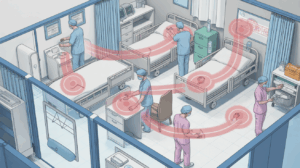
Losing an eye changes nearly every part of a person’s life. When eye loss occurs due to medical negligence, affected individuals or their families may have options to pursue compensation.
Recognizing the signs that the loss of an eye was caused by medical negligence is the first step toward getting justice. A Fort Lauderdale medical malpractice lawyer can guide you through the rest of the legal process and help you hold the at-fault parties accountable.
How Can Medical Mistakes Lead to Eye Loss?
Losing an eye because of a medical error isn’t common, but it happens more often than most people think. Many of these cases begin with a small problem (such as a treatable infection, a delayed diagnosis, or an improper procedure) that spirals into something irreversible.
Some of the most common medical errors that can result in eye loss include:
- Surgical errors: Mistakes made during or after surgery on the eye, head, or face can damage the optic nerve or surrounding tissues, leading to blindness or requiring eye removal.
- Failure to diagnose or treat infection: Untreated eye infections like endophthalmitis or orbital cellulitis can rapidly spread and destroy the eye.
- Misdiagnosis of eye conditions: Failing to recognize conditions such as glaucoma, retinal detachment, or ocular melanoma can lead to irreversible damage.
- Improper use of medications: Certain medications, when used incorrectly or prescribed in the wrong dosage, can cause toxic reactions in the eye.
- Anesthesia errors: Nerve damage from improper anesthesia administration during surgery can lead to vision loss or loss of the eye.
When doctors or hospitals fail to provide the level of care expected of a competent medical professional, they may be liable for the resulting harm.
Signs That the Loss of an Eye Was Caused by Medical Negligence
Not every loss of an eye is caused by negligence, but many are. Here are key warning signs that your eye loss might be linked to medical negligence:
- Lack of informed consent: If your doctor didn’t properly explain the risks of a surgery, treatment, or medication that later resulted in the loss of your eye, that may indicate negligence.
- Sudden complications after a routine procedure: If you experienced unexpected vision problems, pain, or infection after what should have been a low-risk procedure, it could signal that something went wrong during surgery or recovery.
- Failure to diagnose or delayed diagnosis: If you repeatedly reported symptoms like eye pain, redness, or vision changes and your provider dismissed them, that delay could have allowed the condition to worsen beyond repair.
- Inconsistent or contradictory explanations: When medical staff can’t clearly explain how your injury happened, or their explanations change over time, that’s often a red flag for potential malpractice.
- Ignored test results: If lab or imaging results showed early signs of disease that were overlooked, you may have grounds for a claim.
- Records or notes that don’t match your experience: In some cases, medical records may leave out key details or include information that doesn’t line up with what actually happened.
If any of these apply to your case, it’s worth talking to a medical malpractice lawyer who can have an independent expert review your records.
The Impact of Losing an Eye
The loss of an eye can have serious emotional, psychological, and financial consequences. People who go through this experience often struggle with depression, loss of independence, and challenges returning to work or daily activities. Some of the most common effects include:
- Permanent vision loss: Even if one eye remains healthy, depth perception and peripheral vision are permanently reduced.
- Chronic pain or phantom sensations: Some patients experience lasting discomfort or nerve pain after enucleation (eye removal).
- Emotional trauma: Losing an eye can cause severe anxiety, post-traumatic stress, and loss of confidence or self-image.
- Financial strain: Between medical bills, time off work, and the cost of prosthetic eyes or rehabilitation, the financial burden can be overwhelming.
Proving That a Medical Mistake Caused the Eye Loss
To build a successful medical malpractice claim, you will need to establish four key elements:
- A doctor–patient relationship existed: This confirms that the provider owed you a duty of care.
- The provider was negligent: You must show that the care you received fell below the accepted medical standard.
- The negligence caused your injury: It must be proven that the medical error directly led to the loss of your eye.
- You suffered damages: This includes physical pain, emotional distress, medical costs, and lost income.
An experienced malpractice attorney can help gather medical records, obtain expert testimony, and connect the dots between what the provider did wrong and your injury.
What to Do If You Suspect Medical Negligence
If you believe your eye was lost because of a doctor’s mistake, you should:
- Request your medical records: Get a full copy of your records from every provider involved in your care. These documents will be the foundation of your case.
- Document everything: Write down a detailed timeline of what happened, including your symptoms, treatments, and every conversation with medical staff.
- Seek a second opinion: Another doctor may be able to identify what went wrong or confirm that the loss could have been prevented.
- Consult a malpractice lawyer: A lawyer can help determine if you have a viable claim and explain your legal options.
Talk to a Medical Malpractice Lawyer
Losing an eye because of a medical mistake is an unimaginable ordeal. But if negligence caused it, you have the right to seek compensation. A medical malpractice lawyer from Anidjar & Levine can help you uncover the truth and get the justice you deserve.
Schedule a free case review to start building your claim.










